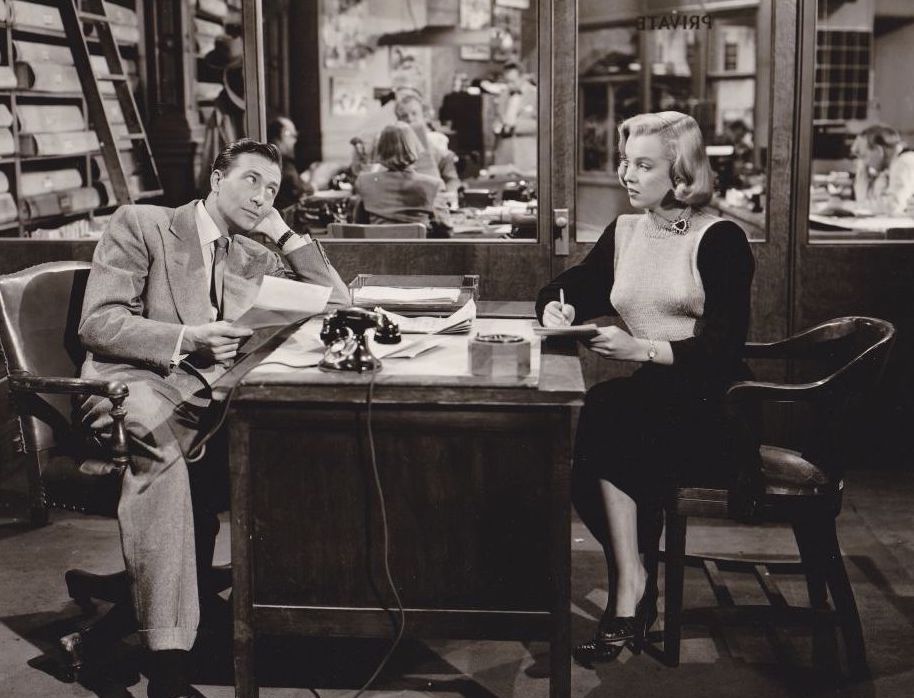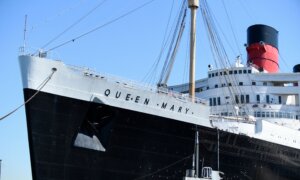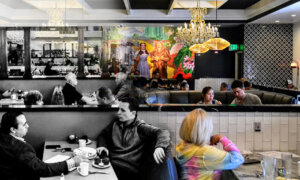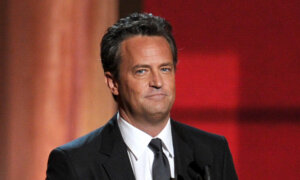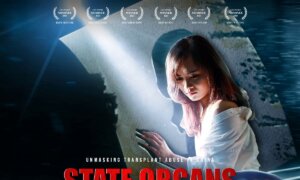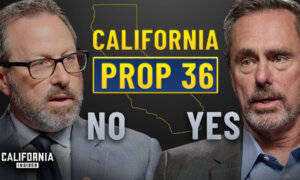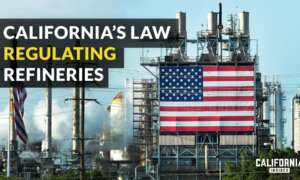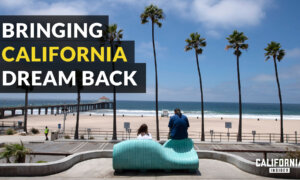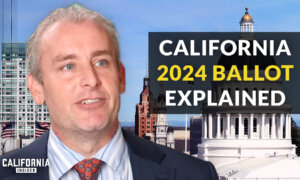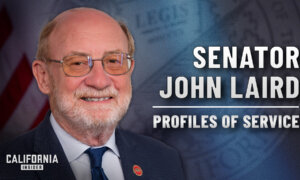Commentary
What is the purpose of investigative reporting? The very name means that its job is to discover all the relevant facts and then report them. This can be a useful tool to inform the public about the truth of a matter. However, it can also be a powerful way to sway public opinion. When this power is used to spread false or exaggerated ideas or leave out crucial information, investigative reporting becomes the enemy of freedom, when it should be its guardian.
Today’s moment of movie wisdom is from “Home Town Story” (1951). This scene takes place 37 minutes into the 61-minute film. A smalltown newspaper editor (Jeffrey Lynn) plans to expand his publication’s influence by crusading on a controversial topic. He accuses big businesses of being greedy octopi which profit at the cost of their customers. Finally, the president of the biggest local business (Donald Crisp) comes into his office and offers his personal theory that a business is only successful if it profits the customers, too. When the company ends up saving his young sister’s life (Melinda Plowman), the editor realizes that he’s judging businesses unfairly.
The Story
Blake Washburn (Lynn) is a war hero turned senator who bitterly returns to his hometown after he isn’t reelected. He’s convinced that his constituents were swayed by propaganda to vote against him, but he is disturbed to learn that many of his old friends voted for his opponent. While his uncle (Griff Barnett) goes on a long-awaited vacation, Blake takes over as editor of the local newspaper. His best friend, Slim (Alan Hale Jr.), is a reporter for the paper.
However, those near to Blake soon realize that he has changed since he left his hometown. He now has an agenda for the paper, so he’s trying to find a controversial cause to advocate. When pollution of a local river from a factory doesn’t pan out, he gets an idea from a news bulletin about a big company’s increased profits. He begins publishing columns which pointedly question, criticize, and attack big businesses for getting rich at the expense of the common man. Although he starts on a general level, he quickly narrows his focus to the local businesses, namely, the company owned by his political rival’s father.
Blake’s fiancée, schoolteacher Janice Hunt (Marjorie Reynolds), realizes that he is using the paper to gain public support for his future political career. She tells him that she wants to support his dreams, as long as he isn’t misusing the power of the press.

Lobby card for the film “Home Town Story” (1951). (MovieStillsDB)
The Scene
One day, John MacFarland (Crisp) walks into the newspaper office. He’s the president of the biggest manufacturing firm in the area, so he knows that Washburn’s columns have been aimed at him. He isn’t angry or confrontational, despite Blake’s unfriendly attitude. He begins by admitting that he’s been following his column closely and concedes that the big companies are news. “Of course they are,” Blake agrees, “especially their profits.” “That’s right,” MacFarland continues, “and I’m interested in profits, both for myself and the customer. My main reason for coming here was to see if I could perhaps interest you in printing something about a pet theory I have. I call it profits to the customer. ... I have to make a profit to stay in business. ... I make a profit on every electric motor I sell, but the customer must make a larger profit, because if he doesn’t, he won’t buy more motors, and I’m out of business.”
“The customer must make a profit?!” Blake incredulously repeats. “That’s right,” Mr. MacFarland says before explaining, “For example, you have some typesetting machines out there. The manufacturer who sold them made a profit on them. But your paper would never have bought them in the first place if they couldn’t deliver something beyond their original cost. They must continue to work for your paper to be worth more to you than you paid for them. As a customer, that’s your profit. ... You sell your newspaper to a man for five cents. He gets news, advertisements, and all kinds of information for his home and business. He gets service beyond the value of his five cents. As a customer, that’s his profit. It’s the same story with everything else: the lightbulb, the refrigerator, the telephone.”
Its Significance
Mr. MacFarland’s observations about the intangible profits which products yield to customers make a lot of sense to Slim, who has been quietly observing the conversation. He remarks, “That’s a different slant from what we’ve been printing.” Annoyed, Blake argues, “As you say, that’s just a theory. But you can’t deny that you are big business.” Resolutely, MacFarland responds, “In your editorials, you’ve been insisting that because a thing is big, it’s bad. It takes bigness to do big things. Our industries turned out equipment for our armed forces in a remarkably short space of time. It was a big job, and it was well done. It helped us to win the war and preserve our country. That’s what American industry with its bigness was able to accomplish.”
Unconvinced, Blake demands, “Why are you telling me all this?” “Well, I thought perhaps you might be interested in both sides of this profit question. Print something else for a change.” Blake harshly responds, “Mr. MacFarland, I don’t tell you how to run your plant, so please don’t tell me how to run my paper. I’ll print my own conception of business profits.”
At this point, Blake is so bitter about losing the election that he doesn’t hear the sense in what Mr. MacFarland is saying, because he isn’t even willing to listen. He started out looking for anything which could tarnish MacFarland’s reputation as a way to get back at his son. This sounds pretty vicious, but Blake’s motives aren’t entirely selfish. He genuinely believes that the constituents were deceived by a slick campaign, paid for by MacFarland Motors. As he takes up the crusade of high profits for big businesses, he isn’t trying to deceive the public, but he may not be printing the whole story. He himself is convinced that the big companies are getting rich off the common man, and MacFarland Motors is Public Enemy No. 1 in his book.
Big Business Equals Big Corruption?
“Home Town Story” raises thought-provoking questions about big business. Is anything big inherently evil? True, excessive power leads to corruption. However, power can also be used for good. This movie reminds us that American industry helped make our country the powerful leader it was in the 20th century. If a company is run by an honorable man like Mr. MacFarland, it can be a true success, because the customers will profit from it, too.

